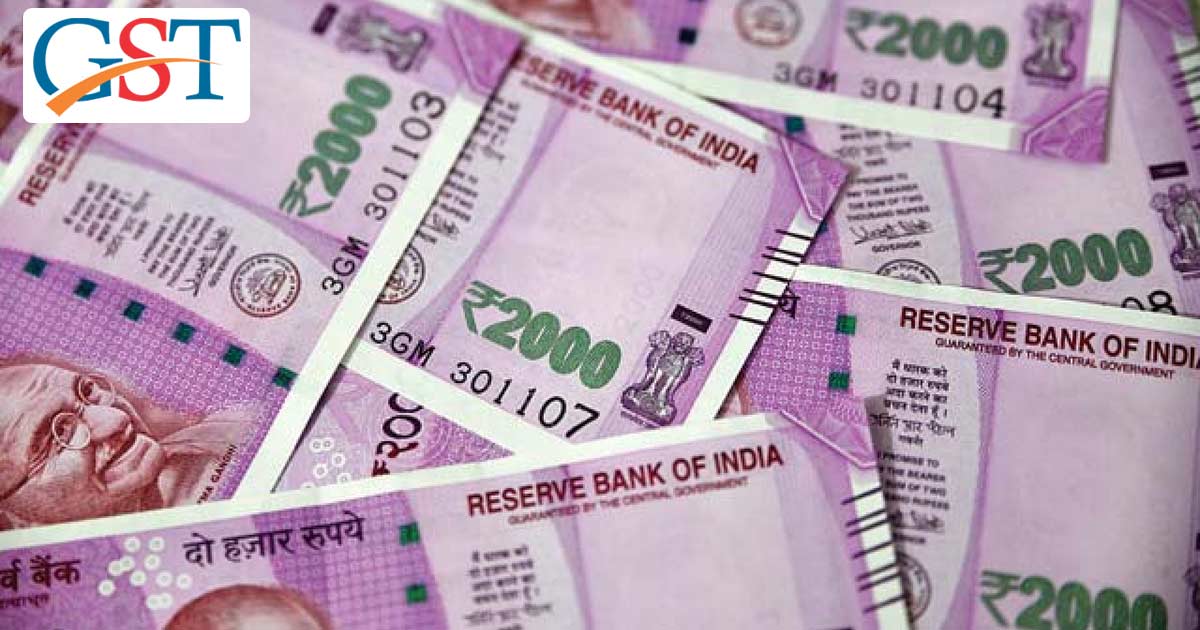As the set target of eight months which stand at Rs. 7.28 trillion, the government slightly collected the revenue Rs. 100 billion low, as compared to the basic target mentioned by the authority for the starting eight months of Goods and Services implementation.
The wipe-up was restrained in October, November, and January and all these created a shortfall in the collection. The collection for months stands at Rs 7.18 trillion. If we consider the collection averagely, it is estimated to Rs 910 billion collections per month. The run rate was, successively, earned from 14% indirect tax revenue growth considering states and the Budget Estimates for 2017-18.
Under the Goods and Services Tax, Credit Suisse evaluates the total collection for the Centre include Rs 4.6 trillion. This collection is approximately 3.3% higher as compared to the Rs 4.44 trillion target considering the Revised Estimates for 2017-18. This figure indicates that states are expected to have acquired nearly Rs 2.6 trillion.
Although, while counting the provisional number which stands for an extensive break-up, the revenue collections under new indirect tax regime reach up to Rs 6.97 trillion. The provisional figure was afterwards updated uphill.
Read Also: Meaning of SGST, IGST, CGST with Input Tax Credit Adjustment
The provisional collection under GST demonstrates that the Centre is expected to have acquired Rs 1.15 trillion by the collections from the central GST (CGST) till March, whereas the states might have received Rs 1.66 trillion by the state GST (SGST). The total collection figure for the Integrated GST (IGST) is expected to collect Rs 3.52 trillion, whereas the collection under the compensation cess is likely to stand at Rs 627 billion.
Recently, from the IGST collections, economists Business Standard said that the Centre is expected to get approximately Rs 715 billion till March, whereas considering the states, they have collected another Rs 1 trillion. This also indicates that the unused IGST might be approximately Rs 1.8 trillion.
Credit Suisse mentioned in a report, “CGST collection was below target and unallocated IGST much above. This may persist in FY19 too: IGST on interstate transactions in supply chains where final consumption is GST exempt (e.g., diesel or electricity) will stay unclaimed and add to the Centre’s kitty. Unallocated IGST also has more CGST.”
These estimates are relied on provisional GST numbers and are expected to be updated marginally uphills as the Centre has updated headline GST revenue collections for January and February months.
In January, as opposing provisional estimates collection of Rs 863.2 billion, GST collections have been updated slightly up to Rs 880.4 billion. Likewise, for February, the Revised Estimates exhibit the collections under the new indirect tax regime at Rs 892.6 billion, which is higher than the Rs 851.7 billion earlier.
Devendra Pant, chief economist, India Ratings and Research said, “GST collections remained in the range of Rs 900-920 billion from July to September. They declined from October due to claims on pre-GST stocks. After that collections have remained around Rs 850 billion. The number of taxpayers has been growing steadily barring February. The new e-way bill system is likely to plug the leakages in the GST collections.”
Madan Sabnavis, a chief economist with CARE Ratings, mentioned that there had been unpredictability in the monthly figures as of charges in rates. “We will get a clear sense of the trend in government revenues in the current financial year.”










